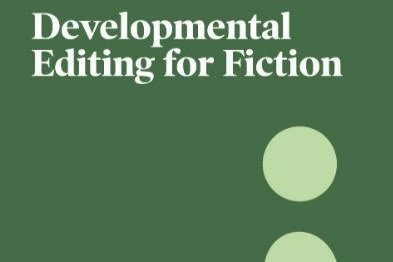The Novel Writing How-To Blog
Follow the Write Your Novel Now! Blog to learn how to write your novel in months rather than years!
Using The M.I.C.E. Quotient to evaluate your novel draft
The M.I.C.E. Quotient is a method of categorizing stories based on the four core narrative elements of Milieu, Idea, Character, and Event. It is an excellent starting point for evaluating the focal point of a novel manuscript to determine whether the first draft concentrates on the appropriate element or elements that will most effectively achieve the writer’s creative vision.
Even fiction writers have to research their subject matter
Once you have written the first draft of your novel manuscript, you may find during the evaluation stage of the writing process that there are elements of your story that could use some fact-checking. Research is an important part of writing a novel, as it can provide the necessary information and inspiration to create a rich and believable world for your story.
image credit: https://amzn.to/3Qoc4fw
Believability in fiction: Another factor to consider when evaluating your novel draft
While fiction doesn't always need to be strictly realistic, these elements of believability help draw in the audience and allow them to engage with the story on an emotional and intellectual level. Believability should always be considered when evaluating your own writing to ensure that you meet the needs of your intended audience.
image source: https://amzn.to/458RZ0z
Evaluating a writing partner’s novel manuscript draft
Not only can offering your developmental editing services to other writers in your writing community help them save money (and then save you money later when they return the favor,) but it can also help you improve your own writing skills.
Can you DIY your Developmental Edit?
Hiring an editor to complete a developmental edit of your novel can be expensive. If you can afford it, an effective editor will give you the outside prospective you need to take your manuscript to the next level. However, many emerging writers simply cannot afford the expense and do not have an established writing community to lean on. They may wonder if they can do a developmental edit of their own work.
What is a developmental edit, anyway?
A developmental edit is a type of editing that focuses on the big-picture elements of a novel manuscript such as its structure, plot, character development, and theme. Developmental editors help authors to identify and fix problems with manuscripts such as weak plot points, underdeveloped characters, or an unclear story arc. They may also offer suggestions for improving the manuscript's overall readability and impact.
Seeking targeted feedback on the first draft of your novel
Obtaining feedback on your manuscript during the evaluation stage of the writing process shouldn’t be the same experience as getting your mom’s proud stamp of approval on your published novel. The last thing any writer needs or wants at this stage of the writing process is for anyone to stroke your ego and tell you how awesome you are. During the evaluation stage, it’s important to seek out targeted feedback that will help you improve your writing.
image credit: https://amzn.to/3Q1LnwQ
Asking for feedback on the first draft of your novel
When asking others to review the rough draft of your novel, it is important to be specific about the type of feedback you are looking for. Here are some examples of specific feedback that you can ask for…
Self-evaluation vs. external feedback
There is often a gap between what you think you’ve put on the page and what you have actually put on the page. Seeking outside assistance can help you identify gaps that you might miss on your own.
Letting it simmer: The importance of setting your rough draft on a back burner before you revise it
Once you’ve completed an initial evaluation of your manuscript, it’s time to set it on a back burner for a while and let is simmer. When you’ve been working on a manuscript for a long time, it can be challenging to see it objectively. Taking a break allows you to come back to the manuscript with fresh eyes, making it easier to spot areas that need improvement.
image credit: https://amzn.to/43jglDK
The Third Step in the Novel Writing Process: Evaluate
Now that you have written your novel draft, the next step is to evaluate what you have written. What did you do well, and what needs improvement? It's important to note that while writing quickly can be beneficial during the first draft, the subsequent revision and editing stages are equally crucial for refining and polishing your novel. Once you have allowed your first draft a few days to cool, it’s time to come back to it and evaluate what you’ve written.
image credit: https://amzn.to/46BdDMN










